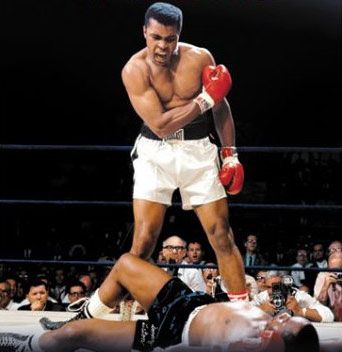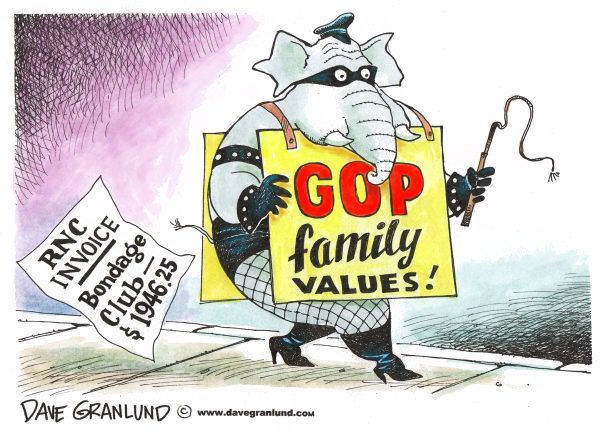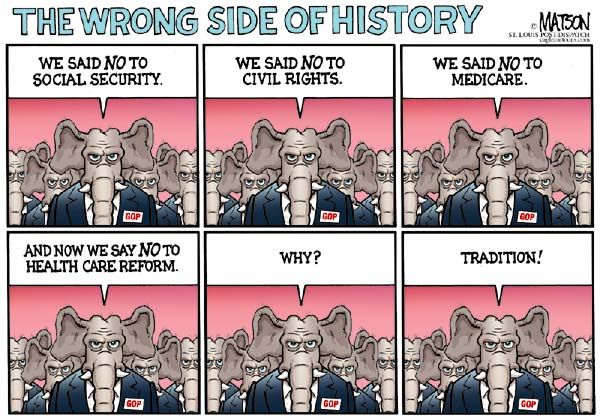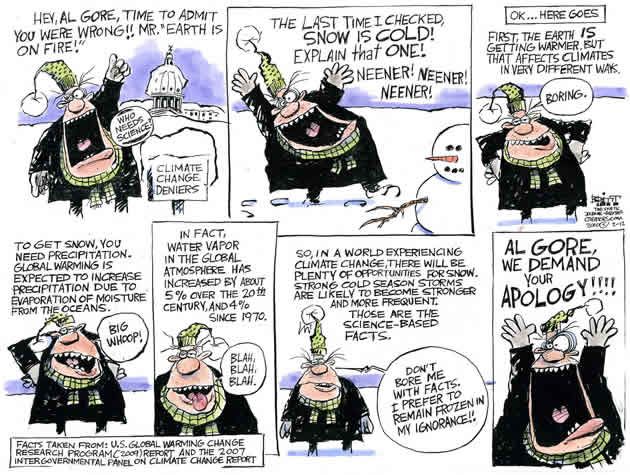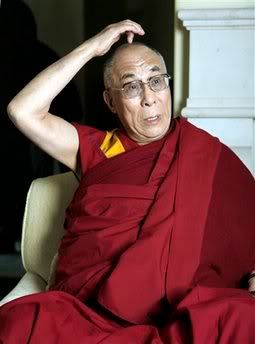On this day where we seek to remember the legacy of the nine years that came before the one very shortly to conclude, I recall the beginning of another decade ninety years in the past. The Presidential election of 1920 returned Republicans to control of the Executive Branch, and epitomized the weariness the American people had with foreign wars and towering idealism. When, a year or so before, Woodrow Wilson proposed the League of Nations to a skeptical American public, itself an altruistic enterprise promising world peace, the proposal was transformed by smears and lies to imply that somehow the United States would sacrifice its autonomy and be governed by foreign powers. By the time a new decade rolled around, isolationism was the word of the hour and with it came a reliance on business and a pursuit of big money. So it was that the Republican nomination for President of the United States was sold to the highest bidder, and with it came the office itself.
Lanton McCarthy’s fascinating recent book, The Teapot Dome Scandal: How Big Oil Bought the Harding White House and Tried to Steal the Country deflates the notion that the past promised some degree of ethical conduct in its elected representatives and stewards of the people’s trust. It would be difficult to imagine a festering cesspool of corruption, dirty deals, and hushed up scandals in more copious quantity than in the form of the gang of thieves who effectively ran the country for three years. Those who believe that the past promises some kind of respite from the sordid, the unethical, and the immoral would do well to think again. One wonders as well if the passage of time will slaughter other sacred cows and lay bear the reality of the situation in question.
A few years back, during the waning years of George W. Bush’s second term, many made a comparison of the gross incompetence present in that Administration to the Harding years, which though it had some parallels, was not a wholly satisfying one. For starters, had there been no Woodrow Wilson and World War I, there would have been no established precedent to reverse, and with it no Warren G. Harding. George W. Bush won in part by tapping into a public desire to return some degree of morality to the Oval Office after the embarrassment of the Clinton Impeachment. Harding won by promising a return to good times and unregulated business wheeling and dealing. Indeed, his very election owed itself to a multitude of deep pockets who provided their support with some serious strings attached, namely high ranking cabinet positions and control of then untapped oil reserves in the Southwest and West in return for high dollar contributions and the votes of the very convention delegates by which Harding was chosen as leader of the GOP. Those who screamed “Drill, Baby, Drill!” in 2008 were merely echoing their predecessors of nearly a century before.
In the spirit of full disclosure, I was prompted to study the Teapot Dome Scandal and the Harding White House due to the fact that I am related to one of the active participants. My late Grandmother, as is true with so many, desperately wanted to prove a direct connection to someone either rich or powerful on a grand scale. This is why she took an active interest in genealogy, and in so doing unearthed the name of a close relative. The relative in question was named Jess Smith, who took the role of yes man, bribe collector, unofficial attorney general, and kick back accountant for Harding’s Ohio Gang. The structure of the Harding Administration resembled an organized crime syndicate more than a government entity, and had Grandmother known this, I doubt she would have taken pride at having de facto mob ties.
Nor would she have found much to crow about had she discovered this,
According to some accounts, Smith’s primary role was to quiet women, including Carrie Fulton Phillips, who claimed that Harding had affairs with them. Smith and Daugherty were members of the Ohio Gang, and they actually were both from Ohio. While Daugherty served as attorney general, Smith held no formal position in the federal government. He simply served as an unofficial assistant to Daugherty. Smith lived with Daugherty at the Wardman Park Hotel in Washington, DC, and it was rumored, at the time, that the two men were engaged in a homosexual relationship. Smith was single, while Daugherty was married.
As rumors spread about corrupt officials in Harding’s administration, eventually Attorney General Daugherty launched various investigations. Critics, especially in the United States Congress, claimed that Daugherty did not vigorously pursue the investigations. Eventually, it was suggested that Daugherty was also working with bootleggers. Bootlegging was a direct violation of the Eighteenth Amendment to the United States Constitution. This amendment established Prohibition in the United States. Smith also was supposedly involved in Daugherty’s illegal activities. Rather than face legal charges and a possible prison sentence, Smith committed suicide.
Smith’s actions, along with those of several other of Harding’s cabinet officials, caused a great deal of distrust of government officials among the American people and also solidified Harding’s reputation as a poor president.
Source: Ohio Historical Society, “Jess Smith”.
Harding’s incautious and highly impulsive womanizing make both Bill Clinton and John F. Kennedy seem tame by comparison. What complicated matters further is that Harding was a bit of a bizarre romantic, who was not inclined merely to keep to one night stands. Instead he heavily courted each of the numerous women with whom he had affairs and in so doing wrote scores of love letters to each of his paramours, providing undeniable documented proof and paper trails a mile long. The RNC, by way of slight-of-hand and creative accounting managed to find untraceable ways to pay off most of these women in exchange for their silence, though two or three did come forward, sometimes goaded on by jealous husbands or boyfriends, threatening to tell all if they were not handsomely compensated for it. This proved to be an additional headache for Harding’s handlers, as they had their hands full putting out fires all over the place. The vast scope of Harding’s adulterous dalliances make Tiger Woods look like a mere novice by comparison and the David Letterman matter a relatively modest affair.
This was, of course, purely the tip of the iceberg. Harding’s own failings were bad enough. It would be difficult to imagine a more disturbing group of unapologetic slimeballs setting up shop in Washington, DC. Their own marital infidelity often rivaled Harding’s, and they quite eagerly engaged in money laundering, bootlegging, obstruction of justice, solicitation of prostitution, covering up the death of at least one accidental homicide, and other crimes. Smith ran a love nest for Harding and his inner circle on H Street that was mere blocks from the White House and could be accessed by way of an underground tunnel. He made sure it was well-stocked with alcohol recently confiscated from rum runners and bootleggers, scantily clad chorus girls shipped down from New York City, and any number of Harding cronies who were always in the mood to play a few hands of a never-ending poker game. It was a $50,000 a year enterprise and came complete with a full time cook and full time butler. Harding’s wife was well-aware of her husband’s behavior, but refused to besmirch the reputation of the office by allowing such conduct in the White House, necessitating the procurement of the secret residence. This didn’t, however, prevent Harding from sneaking his favorite mistress into the official home of the President and having sex on the floor of the Oval Office, to boot, confirming at two the number of Chief Executives who have engaged in sexual conduct in that room. I would not be surprised if the exact count was much higher than that.
Much of this, of course, never became public knowledge until decades after the fact. Harding died unexpectedly, towards the end of what would be his only term in office, at which point the entire organization began to unravel. Criminal investigations followed, at which point the rats began to scurry from the ship, and a shocked public recognized just how indebted its federal government had been to the whims of big business, particularly the oil industry. The American oil powers had recognized just how lucrative exporting crude could be and how it could be profitably marketed and sold to a Europe that was still rebuilding from World War I. It is for that reason that they wanted complete control over land that was under the jurisdiction of the U.S. Government, in particular designated to the Department of the Navy. Granted, this land had been wrested from Native Americans a few decades before, but these men were not particularly sympathetic to the plight of indigenous peoples or to the conservation movement, which is the immediate precursor to the environmentalism of today. That has not changed much in nearly a century.
A wealthy Oklahoma oilman named Jake Hamon contributed over a million dollars to Harding’s campaign immediately prior to the convention, buying off enough delegates in the process to win him the right to name the position he wanted within the presumptive Cabinet. Hamon coveted the Secretary of the Interior slot, since it promised full control of government-owned oilfields, of which Teapot Dome was one. Once formerly installed, Hamon reckoned he’d rake in enough revenue to make him the richest man in the country, if not the world, by directing the oil profits into his own pocket, rather than that of the government coffers where it rightly belonged. He would have been richer than Rockefeller and openly bragged about it to anyone who would listen.
His plans were rather abruptly short-circuited, however, when his much younger and long-term mistress shot him, whereupon he died from his wounds five days later. It seems that Mrs. Harding would not stand for Hamon to bring his mistress to 1600 Pennsylvania Avenue–only his neglected wife and their children. Hamon was then forced to inform the other woman, Clara Hamon (no relation, despite the same last name) that she could not come with him. The mistress, however, had other ideas. After mortally wounding Jake, she found a letter in his papers addressed to him from Harding, specifically spelling out the precise quid pro quo of the cabinet position. The letter was signed in the President-Elect’s own hand, and Clara knew that as long as the letter was in her possession, she held a powerful trump card that would prevent her from being convicted for murder and put to death.
This kind of brazen, Wild West kind of attitude is what eventually led to the complete dissolution of the Ohio Gang. The Bush Administration, by contrast, kept a code of silence and with it a very secretive attitude that deliberately locked out all but those with the President’s primary ear. It was no less incompetent and no less arrogant, but it was ultimately undone not by a kind of unrestrained permissiveness but rather by its dogged determination to stifle dissent and label those who disagreed with its narrow interpretation of pressing concerns and ideological stances as anti-American and borderline traitorous. The lessons, then, to be learned from Harding and the beginning of another decade are not so much in our rear-view mirror, but in the future that lies before us.
Another erudite, well-polished, academic Democratic President has promised major reforms based on idealistic notions of unity and cooperation. This same President won the Nobel Peace Prize based not so much on actual achievement as by the expansive goals he has set forth, goals that may or may not find enactment on a broad scale. Now, as then, he is far more popular in the rest of the world than he is at home. Now, as then, he was elected on the premise to, if not keep us out of war altogether, certainly minimize our commitment to it. Later both men reversed course and Obama has since taken full ownership of a foreign entanglement. Assuming he wins a second full term, the question on the glossy cover of soberly contemplative print magazines (assuming they exist then) will be, “Life after Obama?”
Indeed, it might not be such a bad thing for us to contemplate what the Democratic party, the American people, and the demands facing us will be when this soon-to-arrive decade is well over half-finished. All we need do is look back ninety years to see what happens when a supposed return to normalcy produces little more than an Restoration of the Good Old Boy network. One would hope that our role as bloggers and citizen journalist would continue to be that of the gatekeepers, since investigative journalism seems to have been utterly abandoned by the mainstream outlets. Removing coats of whitewash and pursuing subjects too sensitive to find voice otherwise is how I envision my role. Though some criticize the blogs for being too reactive, too amateurish, and too beholden to echo chamber, there are many worthy and substantial voices out there and these we must continue to lift up and to dig to discover. Everyone must take a role if we are to ensure that someone is watching the store, because history provides a multitude of tragic examples which reveal what happens when it is not being closely monitored. Though my own brush with the past is not an especially inspiring one, I can redeem the sins and the mistakes of prior generations by vowing to never forget and in so doing never neglect a greater purpose beyond myself and my own blood.

